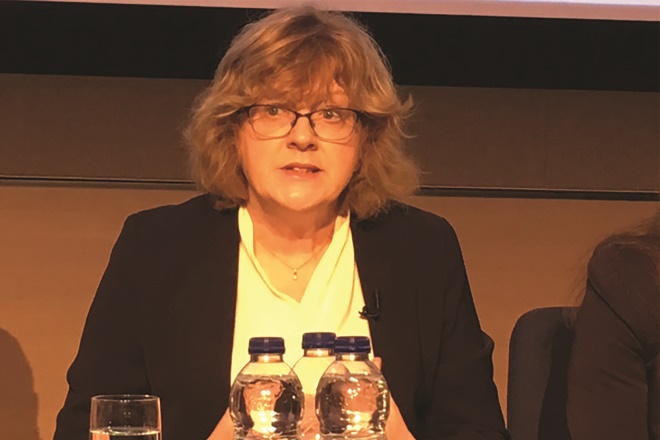
Shutterstock.com
Pharmacy chains are reviewing their business plans and investing in online services and hub and spoke models to increase operational efficiency in the wake of government cuts to community pharmacy funding in England.
On Thursday 26 October 2017, Celesio UK announced that 190 of its 1,600 LloydsPharmacy stores in England will be closed or sold off because they are no longer considered “commercially viable”.
Announcing the news, Cormac Tobin, managing director at Celesio UK, said that the company recognised that pharmacy needed to adapt to changing societal trends and take advantage of the opportunities digitalisation offers patients.
“To achieve this, we need a new operational framework that meets the future needs of patients by creating a thriving pharmacy network that continues to offer essential integrated healthcare that is rooted in local communities,” he said.
“Nonetheless, we must respond to the dramatic reimbursement cuts over the past 24 months.
“Although this is a difficult day for some of our colleagues, this also presents an opportunity for us to set ourselves up for the future and build our reputation as a trusted partner of the NHS.
“This is the beginning of a transformation for our business that will combine the accessibility of our physical pharmacies and their teams, the customer convenience of digital channels and harness the skills of our people to provide a broader range of healthcare in people’s homes, communities or wherever they need it,” he added.
Commenting on LloydsPharmacy’s decision to cease trading in 190 stores, John Nuttall, chief executive officer at Well said that with a £170m funding shortfall the industry is facing ever-increasing pressures on margins.
“To respond to this challenge, pharmacy businesses are having to review their operating models to ensure they are as efficient and cost effective as possible, and fit for the future landscape,” he said.
“Consequently, LloydsPharmacy have made the difficult decision to close stores, and have confirmed that they are in discussions with buyers who have expressed an interest in their branches.
“I can confirm that Well is not actively involved in these discussions. However, once more information and a store list is made available, our portfolio team will review it.”
He added that Well will be taking a different approach in response to the changes in the economic and funding landscape by investing in its hub-and-spoke model and digital operations, to increase efficiencies in-store and “give pharmacists time back to provide customers with the care and empathy they deserve”.
When asked whether Boots was planning a review of the viability of its shops or considering purchasing any LloydsPharmacy branches earmarked for disposal, a spokesperson for the company said: “As a listed company we would never be able to comment on speculation and our future plans.”

Source: National Pharmacy Association
Ian Strachan, chairman of the National Pharmacy Association, said that he hopes ministers will be prepared to discuss a long-term plan to unlock the potential of community pharmacy and improve healthcare in England
Ian Strachan, chairman of the National Pharmacy Association, said that the LloydsPharmacy closures are an indication of the “immense pressure” independent pharmacies are also under.
“We look forward to meaningful talks with ministers about the situation in relation to independents shortly,” he said.
“I hope they will be prepared to discuss a long-term plan that unlocks the potential of community pharmacy, to dramatically improve healthcare in England.
“Closures are only one measure of the current situation across the sector — pared back services, reduced opening hours and lower morale in the pharmacy workforce are also evidence of the pressure we are all experiencing,” he added.

Source: Royal Pharmaceutical Society
Sandra Gidley, chair of the Royal Pharmaceutical Society English Pharmacy Board, said the LloydsPharmacy’s decision demonstrates how harshly the cuts are affecting community pharmacy: “We are hugely concerned for the dedicated pharmacists and their teams who now have an uncertain future while continuing to provide high quality services for patients”
Sandra Gidley, chair of the Royal Pharmaceutical Society English Pharmacy Board, said that LloydsPharmacy’s decision “demonstrates how harshly the cuts are now affecting community pharmacy”.
“Patients and the public value having easy access to highly trained pharmacists in the heart of their communities. We are hugely concerned for the dedicated pharmacists and their teams who now have an uncertain future while continuing to provide high quality services for patients,” she said.
“The potential impact these closures will have on deprived communities and those who need access to community pharmacists the most is also extremely worrying.
“At a time when the NHS is facing unprecedented financial challenges, community pharmacies could help ease the pressure on other services, but this will only happen if the network remains sustainable.
“It’s time to give serious consideration to how community pharmacists can truly become part of an integrated primary care team and deliver more clinical services direct to patients,” she added.
Gidley anticipates that the closures will be on the agenda at the All Party Pharmacy Group meeting on 30 October 2017, which pharmacy minister, Steve Brine, will be attending.


